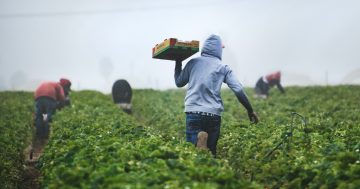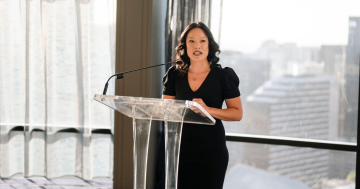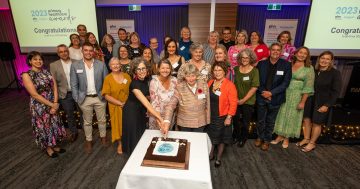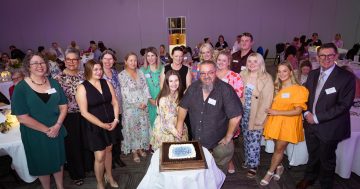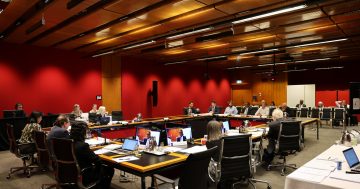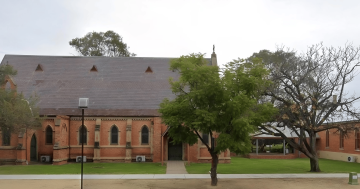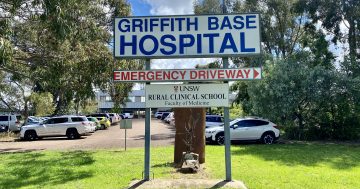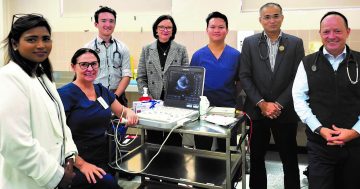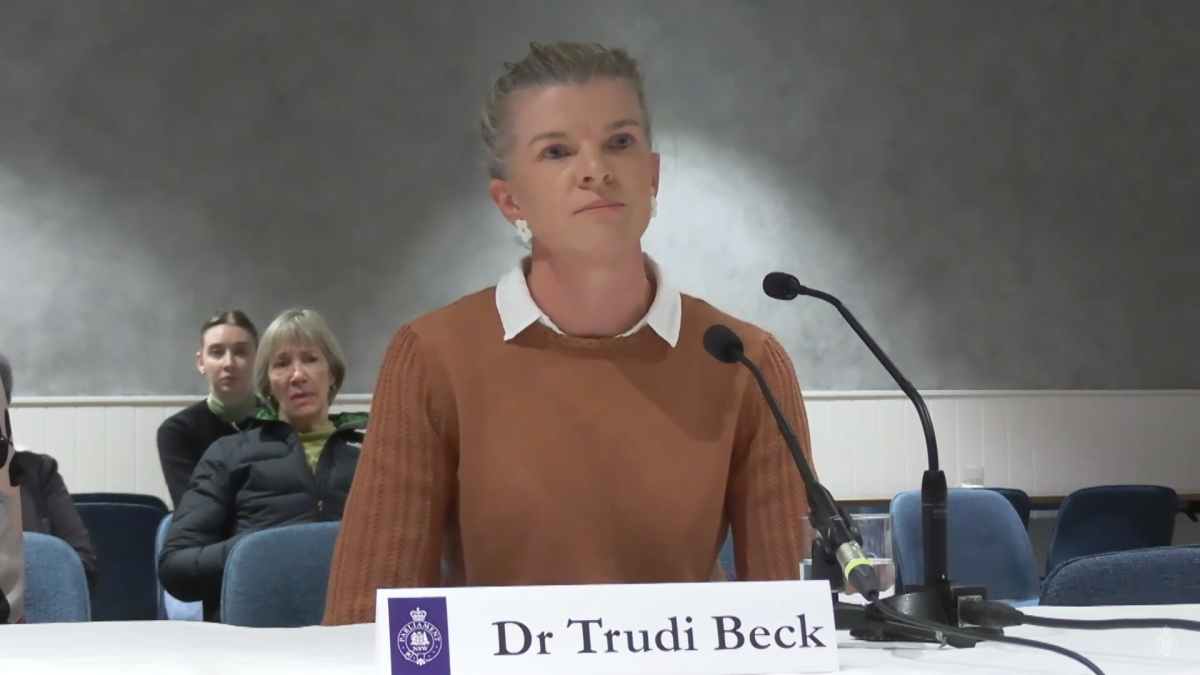
Wagga GP obstetrician Dr Trudi Beck says she never had the opportunity to make an individual submission. Photo: NSW Parliament/Screenshot.
Questions have been raised about why the state and federal governments’ Riverina health bureaucracies failed to make a submission to a major inquiry into modern slavery, despite appearing to tell health experts they would do so.
On Thursday (19 June), a Griffith hearing of the NSW parliamentary inquiry into modern slavery risks faced by temporary migrant workers in rural and regional NSW heard that a joint submission between the State Government’s Murrumbidgee Local Health District (MLHD), Federal Government’s Murrumbidgee Primary Health Network (MPHN) and a prominent Wagga GP was never submitted.
Wagga GP obstetrician Dr Trudi Beck told Region she assisted mistreated female migrant workers in her practice and raised the issue of exploitation with MPHN.
“Previously, the [MPHN] asked me to co-author a submission that would be put in with the [MPHN] and the MLHD. And so that was submitted,” she said.
“But then I wasn’t ever told that the MLHD decided not to proceed with the submission. When I went online after the closing date for submissions, my submission wasn’t there.
“I never even got the opportunity to just make an individual submission.”
Murrumbidgee Primary Health Network’s (MPHN) Senior Manager Priority Populations Anita McRae also questioned the mysterious absence of this joint submission, at the Griffith hearing.
“There was the intention of [MLHD and MPHN] to put in a joint submission, which Trudi referred to and was going to have involvement in. That didn’t eventuate. I am unclear as to why that didn’t eventuate. I can seek clarification on that for the group,” Ms McRae said.
The temporary workers in question are from the Pacific Australia Labour Mobility (PALM) scheme, which allows employers in regional NSW to fill labour gaps by recruiting workers from nine Pacific islands and Timor-Leste.
Workers from the PALM scheme were revealed to be at risk of being forced into what’s been called “modern slavery” in the inquiry. They are required to pay back the cost of their visa and airfare within 16 weeks of landing in Australia.
The inquiry detailed stories of migrant workers found to be residing in overcrowded and “unliveable” accommodation, which are provided by their employers.
There were also shocking accounts of temporary workers spending all their annual leave to return to their home country to give birth, then returning to Australia to continue working.
Region asked MPHN whether a submission to the parliamentary inquiry was made, whether there was any intention to prepare a joint submission with other parties including MLHD and Dr Beck, and what happened to the submission from Dr Beck and others.
We also asked what support MPHN currently provided GPs or PALM workers facing exploitation or abuse, and if there were any plans to make any changes or reforms to current services after the evidence tendered at the inquiry.
MPHN did not answer any of our questions, but MPHN CEO Stewart Gordon said he welcomed the opportunity to be involved in the parliamentary inquiry and was working towards creating a Health Needs Assessment.
“We were pleased Dr Trudi Beck, a member of our Wagga Wagga Clinical Council, was able to accompany us and put forward her firsthand experiences supporting migrant workers, adding depth and understanding to the issue,” Mr Gordon said.
“We acknowledge the issues surrounding migrant health are complex and multilayered and will require a human-centred systems change to ensure adequate health and wellbeing support is available for migrant workers,” Mr Gordon said.
“MPHN has limited access to data on the prevalence of itinerant or seasonal workers in our region, as these populations are unlikely to be fully captured in census data.”
We also asked MLHD to explain why it didn’t make a submission, but it refused to answer. A spokesperson provided a response unrelated to our questions.
“Earlier this year, district staff met with NSW Anti-slavery Commissioner Dr James Cockayne during his visit to the Murrumbidgee region. Staff have also met with Dr Joe McGirr MP, Chair of NSW Parliament’s Modern Slavery Committee,” the spokesperson said.
“MLHD and the Murrumbidgee Primary Health Network (MPHN) have a formal Collaborative Agreement, which aligns the work both organisations are undertaking for our communities and helps to identify new ways in which we can support each other in delivering these services.”
Dr Beck said she appreciated the difficulties faced by authorities.
“I can understand that these are challenging issues for state and federal governments to navigate,” she said.
If you or someone you know is experiencing, or at risk of experiencing, domestic, family, or sexual violence, call 1800 737 732, text 0458 737 732 or visit 1800RESPECT.org.au.
The Multicultural Council of Griffith can be contacted at (02) 6964 4366, 0412 811 343 or [email protected].







